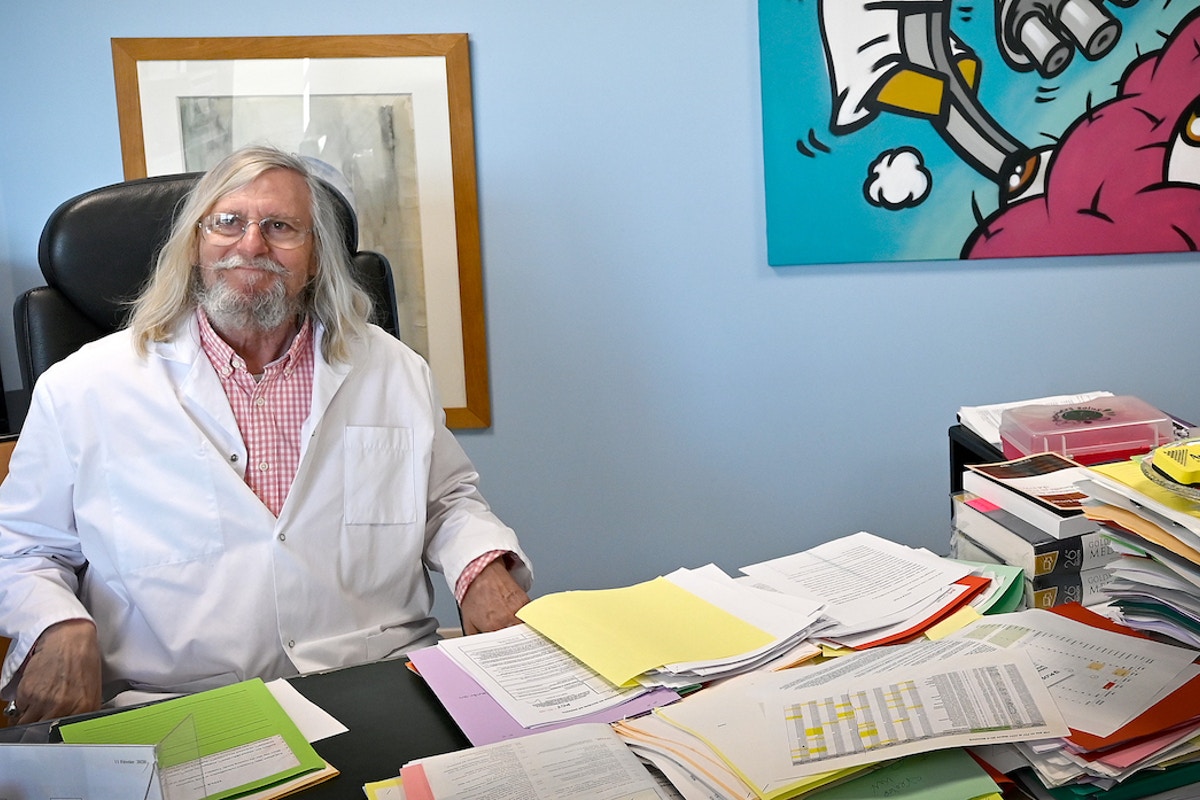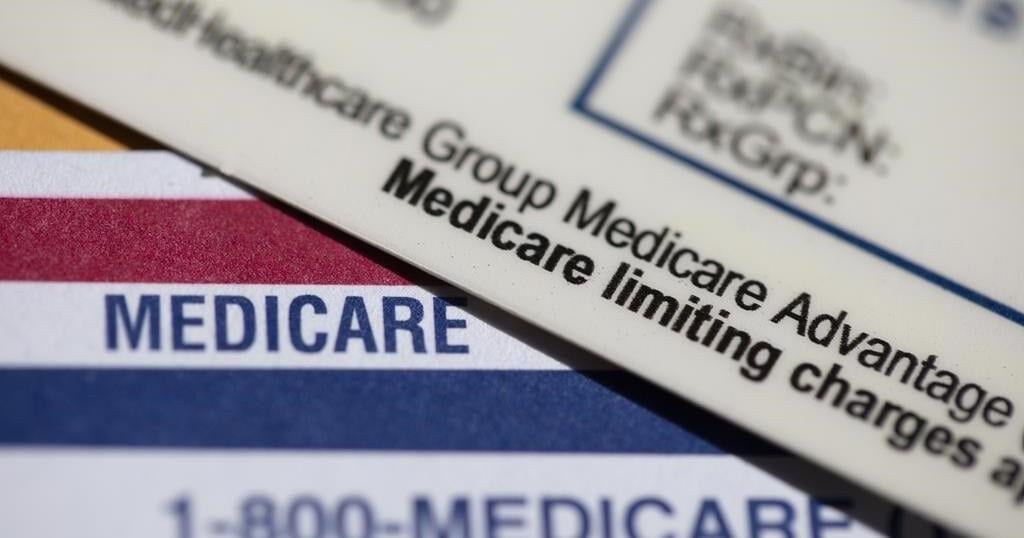On Sunday, chloroquine phosphate killed somebody. An elderly couple in Arizona, who feared that they had been infected by the coronavirus but apparently had not, procured a version of the chemical used to clean fish tanks and swallowed it. Within 30 minutes, both fell ill and had to be rushed to a Phoenix-area hospital, where the man died and his wife remains under critical care.
“Given the uncertainty around Covid-19, we understand that people are trying to find new ways to prevent or treat this virus, but self-medicating is not the way to do so,” Dr. Daniel Brooks, the medical director of the Banner Poison and Drug Information Center in Phoenix, said in a statement.
The couple’s names were not released by the Banner Health hospital where they were treated, and it is not yet known where they obtained the chloroquine phosphate, although the social-media news agency Storyful reported last week that bottles of the pills commonly used in aquariums had shot up in price on eBay from $9.99 to $1,250 on Thursday.
A spokesperson for the hospital that treated the couple said that she did not know where they got the idea that the chloroquine phosphate used to clean aquariums was safe for human consumption, but a Fox News web headline last week blurred the difference. “Drug cleared by Trump, FDA for coronavirus testing also found in fish tanks,” Fox told its readers.
Brooks told The Arizona Republic that his group’s poison centers were getting calls from people asking if they can use medications or household products to treat Covid-19. Some of the calls were about chloroquine, prompted by what Brooks called, “misinformation that they’re obtaining from the interweb and television.”
Nigeria also reported two cases of chloroquine poisoning after Trump boosted the anti-malaria drug as a Covid-19 cure. The African nation’s Center for Disease Control warned Nigerians on Friday that chloroquine has not been approved as a treatment for the disease by the World Health Organization.
On Friday, Trump had downplayed warnings from Dr. Anthony Fauci, the nation’s top immunologist, who said that even though the drug is also used to treat rheumatoid arthritis and lupus, without large scale, randomized clinical trials, it was not yet possible to be sure that chloroquine was effective or safe for people suffering from Covid-19, the pandemic respiratory illness. While chloroquine was only rarely dangerous for people with malaria, Fauci said, “what we don’t know, is when you put it in the context of another disease, whether it’s safe.”
“We’re trying to strike a balance,” Fauci said, “between making something with a potential of an effect to the American people available, at the same time that we do it under the auspices of a protocol that would give us information to determine if it’s truly safe and truly effective.”
On Saturday, Trump ignored that caution and tweeted that a combination therapy of hydroxychloroquine, a less toxic derivative of chloroquine, and the antibiotic azithromycin — which was administered to six patients who recovered from Covid-19 this month in France — has “a real chance to be one of the biggest game changers in the history of medicine.”
“The president is talking about hope for people,” Fauci said when asked about the tweet at a briefing on Saturday. “My job, as a scientist,” he added, “is to ultimately prove, without a doubt, that a drug is not only safe by that it actually works.”
The preliminary research touted by Trump was conducted by Professor Didier Raoult, a French virologist who directs the Mediterranean Infectious and Tropical Disease Institute in Marseille. According to a non-peer-reviewed draft paper posted online last week, Raoult and his colleagues began treating 26 Covid-19 patients with hydroxychloroquine earlier this month. After six days, 14 of them “were virologicaly cured,” including six who were also treated with azithromycin, compared to just two of a control group of 16 patients who did not get the drugs.
Raoult’s claim that the study proves the effectiveness of hydroxychloroquine on Covid-19 has been questioned for its very small size and some odd choices in how it was conducted. Then there is the fact that six of the patients treated with hydroxychloroquine had adverse reactions within three days: one died, three were removed from the study when they were transferred to intensive care, one tested negative for the virus and one stopped the treatment because of nausea. Those failures were simply dropped from the study’s statistics.
The Centers for Disease Control described Raoult’s work as “a small study” that reported “hydroxychloroquine alone or in combination with azithromycin reduced detection of” the coronavirus “in upper respiratory tract specimens compared with a non-randomized control group but did not assess clinical benefit.”
As Matthew Herper of Stat News explained, “three-quarters of the time, medicines against infectious disease that looked promising in small studies either were ineffective or had side effects that made them unusable” after larger clinical trials.
Raoult, a self-described maverick who bears a passing resemblance to Dr. Harold Bornstein, Trump’s former personal physician, based his work on research done in China earlier this year.
Researchers from the Wuhan Institute of Virology and Wuhan National Biosafety Laboratory reported that hydroxychloroquine can inhibit infections of the novel coronavirus in lab conditions. As the CDC notes, the researchers in China “reported that chloroquine treatment of Covid-19 patients had clinical and virologic benefit versus a comparison group,” which led to the drug being recommended as an antiviral treatment there.
According to the French newsweekly Le Nouvel Observateur, while he is the most influential microbiologist in France, Raoult’s outsized personality and love of a fight colors how his work is perceived by peers and public health officials. A climate change denier, he has scoffed at the global response to the pandemic, saying the virus “does not justify measures worthy of an atomic catastrophe.”
His scorn for this sort of approach to pandemics is not new. Epidemic modelers, like those whose work prompted the current shutdown of public life in the United Kingdom and the United States, are “charlatans,” he told Science magazine in 2012. “There are zero examples in infectious diseases of something that has been predicted by a model,” he added.
Raoult even has a new book about the coronavirus out this week, “Epidemics, Real Dangers and False Alarms,” in which he argues that “this panic is largely due to the exaggerations of the press, which knows that fear ‘sells.’” Rather than universal confinement, Raoult suggests, a better response would be to emulate South Korea — and Germany — by ramping up testing so much that infected individuals can be identified and isolated, cutting the death toll.
As the Irish Times correspondent Lara Marlowe noted, Raoult “shares a certain arrogance with Trump” and Brazil’s president, Jair Bolsonaro, who ordered the nation’s army to produce mass quantities of chloroquine on Saturday. “In my field, I am a star, worldwide,” he told the newspaper La Provence. “I don’t give a damn what others think. I am not an outsider. I’m streaks ahead of the others.”
Like Trump and Bolsonaro, Raoult also scoffs at predictions of climate catastrophe and is a less-than-stellar boss. A dozen subordinates in the institute he runs signed a letter of complaint in 2017 saying they were “frequently belittled, mocked, humiliated, subjected to macho talk, inappropriate attitudes and verbal altercations.” A video interview posted on his institute’s YouTube channel begins with Raoult boasting of his high-ranking on a website called Expertscape.
Still, Trump and Bolsonaro are not the only people anxious to find out if chloroquine might work.
On Sunday, Gov. Andrew Cuomo of New York announced that the state had obtained 750,000 doses of chloroquine, 70,000 doses of hydroxychloroquine and 10,000 doses of azithromycin and would undertake its own drug trial.
Amid reports that the drug is already being hoarded, Cuomo issued an executive order on Monday barring any experimental use of the drug outside state-approved trials. “No pharmacist shall dispense hydroxychloroquine or chloroquine except when written as prescribed for an FDA-approved indication; or as part of a state approved clinical trial related to Covid-19 for a patient who has tested positive for Covid-19, with such test result documented as part of the prescription,” the order said. “No other experimental or prophylactic use shall be permitted, and any permitted prescription is limited to one fourteen day prescription with no refills.”
Nevan Krogan, a biologist at the University of California, San Francisco, who is studying possible drug treatments for Covid-19 told The New York Times that doctors “need to be careful” with chloroquine because the drug seems to target many human cellular proteins and could have many toxic side effects.
On Sunday, Fauci, the director of National Institute of Allergy and Infectious Diseases, gave an interview to Science magazine in which he described the difficulty of keeping Trump from saying things that are not true during briefings. “I can’t jump in front of the microphone and push him down,” Fauci said.
On Sunday night, the government’s most senior immunologist was attacked on Fox News by Steve Hilton, a former adviser to David Cameron, the British prime minister who introduced sweeping austerity measures. Hilton, who supported massive cuts to social programs in Britain when he was in government, accused Fauci and other public health officials of “pushing us towards another Great Depression.”

























